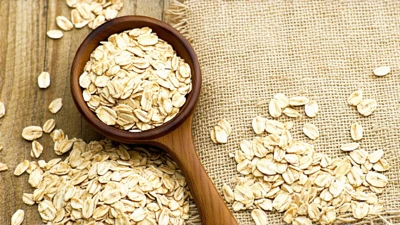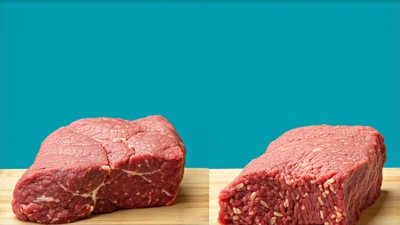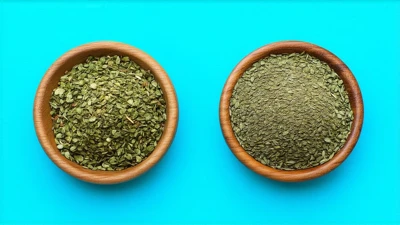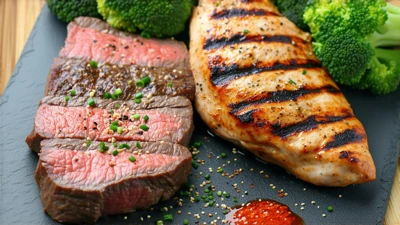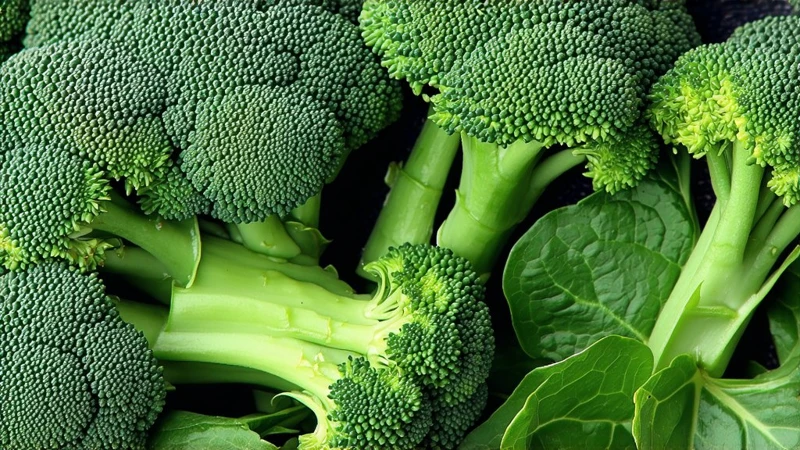
Raw Broccoli vs Spinach: The Ultimate Health Comparison [DATA]
"He increases the power of the weak and gives strength to the weary." — Isaiah 40:29 (NIV)
Nature has two nutritional powerhouses when it comes to seeking health, raw broccoli and spinach. Both are lauded for their health benefits — but which is best? Let's dive into the data.
Raw Broccoli vs Spinach Nutrition Comparison
To compare these greens on a level playing field, let's analyze a 100-gram serving of each, according to data from USDA FoodData Central (2023).
| Nutrient | Raw Broccoli | Raw Spinach |
|---|---|---|
| Calories | 34 kcal | 23 kcal |
| Protein | 2.8 g | 2.9 g |
| Fiber | 2.6 g | 2.2 g |
| Sugars | 1.7 g | 0.4 g |
| Vitamin C | 89.2 mg | 28.1 mg |
| Vitamin K | 141 µg | 482.9 µg |
The Key Point: Spinach may have more vitamin K and be more calorie-efficient, but broccoli has a higher vitamin C and fiber content.
Vitamin Content: Broccoli Vs. Spinach
Sometimes, we need vitamins to help boost immunity, skin health, and energy. Here's how they stack up:
Vitamin C: Broccoli — 89.2 mg (149% DV), Spinach — 28.1 mg (47% DV)
Vitamin K: Spinach: 482.9 µg (604% DV) vs broccoli's 141 µg (176% DV)
Folate: Spinach gives 194 µg (49% DV), almost double broccoli's 63 µg (16% DV).
Personal Take: The vitamin K in spinach helps with blood clotting while the vitamin C in broccoli aids in collagen synthesis, so it's a win for skin health.
What minerals are analysed again: Iron, Calcium and Magnesium
Minerals are essential for bone, heart, and nerve function.
| Mineral | Raw Broccoli | Raw Spinach |
|---|---|---|
| Iron | 0.73 mg | 2.71 mg |
| Calcium | 47 mg | 99 mg |
| Magnesium | 21 mg | 79 mg |
Data Highlight: Spinach is high in iron and magnesium, which help with oxygen transport and muscle function. But its calcium is bound to oxalates (see point 23).
Caloric and Macronutrient Information
Being low in calories themselves, both greens are great for weight management. At 23 kcal per 100g, spinach is lower than broccoli at 34 kcal. Protein counts are similar, but spinach's 2.9g beats broccoli's 2.8g.
Scriptural Wisdom: "Whatever you do — whether you eat or drink — do it all for the glory of God" (1 Corinthians 10:31). It's about moderation and balance.
Fiber Content Differences
Broccoli's 2.6g of fiber per 100g trails spinach's 2.2g, but it's still a better choice for gut health: fiber aids digestion and satiety.
Protein Content: Which One Has More of It?
Spinach at 2.9g against broccoli's 2.8g is a statistical tie. Serve either with legumes, for a protein boost.
Antioxidant Profiles Compared
Sulforaphane is a compound found in broccoli that is associated with cancer prevention. Spinach is also rich in lutein and zeaxanthin, essential for eye health.
The Unique Nutrient Found in Broccoli: Sulforaphane
Sulforaphane induces detoxifying enzymes, minimizing oxidative damage. Nutrients published a 2019 study showing it fights inflammation.
What Makes Spinach So Special: Lutein and Nitrates
Lutein prevents macular degeneration and nitrates improve blood flow and benefit cardiovascular health.
Nutritional Benefits of Raw Broccoli
Detoxification: Sulforaphane boosts the liver.
Bone Health: Vitamin K helps with calcium absorption.
Five Health Benefits of Raw Spinach
Heart Health: Nitrates can reduce blood pressure.
Eye Health: Lutein lowers the risk for cataracts.
Digestive Health Impact
Broccoli's fiber promotes regularity, and spinach's magnesium relaxes the digestive tract.
Heart Health Benefits
Spinach's potassium (558mg) counterbalances sodium, broccoli's folate (63µg) lowers homocysteine, a heart disease flag.
Bone Health Support
Both are high in vitamin K, but spinach's 482.9µg tops broccoli's 141µg.
Immune System Support
Broccoli's vitamin C (89.2mg) strengthens immunity; spinach's zinc (0.53mg) helps heal wounds.
Anti-Inflammatory Properties
Betaine in spinach and kaempferol in broccoli quell chronic inflammation.
Cancer-Fighting Compounds
Sulforaphane from broccoli stunts tumor growth; chlorophyll in spinach may reduce absorption of carcinogens.
Blood Sugar Regulation
Spinach's magnesium (79mg) enhances insulin sensitivity, making it perfect for diabetics.
Eye Health Benefits
Lutein in spinach (12.2mg) vs. beta-carotene in broccoli (361µg).
Skin Health
Broccoli vitamin: A (623IU) encourages cell turnover; spinach vitamin: E (2.03mg) shields against UV damage.
Flavor and Texture
The broccoli delivers a crisp, peppery bite; the spinach tender and a little bitter.
Culinary Uses
Broccoli: Salads, slaws and dips.
Spinach: Smoothies, salads, wraps.
The Problem with Calcium Absorption in Spinach: Oxalate Content
Spinach packs 970mg of oxalates per 100g, blocking calcium absorption. Combine with vitamin C-rich foods to counteract this.
Raw Broccoli vs. Spinach for Weight-Loss
Both are low-calorie, though spinach's high water content (91%) could boost feelings of fullness.
Popular Raw Broccoli Recipes
Broccoli Slaw: Shredded broccoli, carrots and a tahini dressing.
Snacks: Roasted broccoli florets in olive oil.
Popular Raw Spinach Recipes
Green Smoothie: Spinach, banana, almond milk.
Salad: Spinach, strawberries, walnuts, feta.
Dietary Preferences
They are all suitable for keto, vegan, and paleo diets. Spinach is tender for blending; broccoli gives added crunch.
Cost and Availability
Spinach is $2.50/lb, whereas broccoli is $1.99/lb (Bureau of Labor Statistics, 2023).
Environmental Impact
Spinach takes 320 gallons of water per pound as opposed to 34 gallons for broccoli (Water Footprint Network).
Storage Tips
Broccoli: Wrap in damp paper towels, refrigerate for five days.
Spinach: Wrap in a perforated bag to avoid wilting.
Conclusion: Which Is Better?
Your goal will inform your choice: both greens are nutrient-dense.
Go for Broccoli: For fiber, vitamin C, and sulforaphane.
Opt for Spinach: As it is rich in vitamin K, lutein, and magnesium.
Which outweighs the rest: As in Proverbs 15:17, "Better a small serving of vegetables with love than a fattened calf with hatred." Make your diet a feast of diverse and joyful food.
What's your preference? Let us know your favorite recipes in the comments below!











